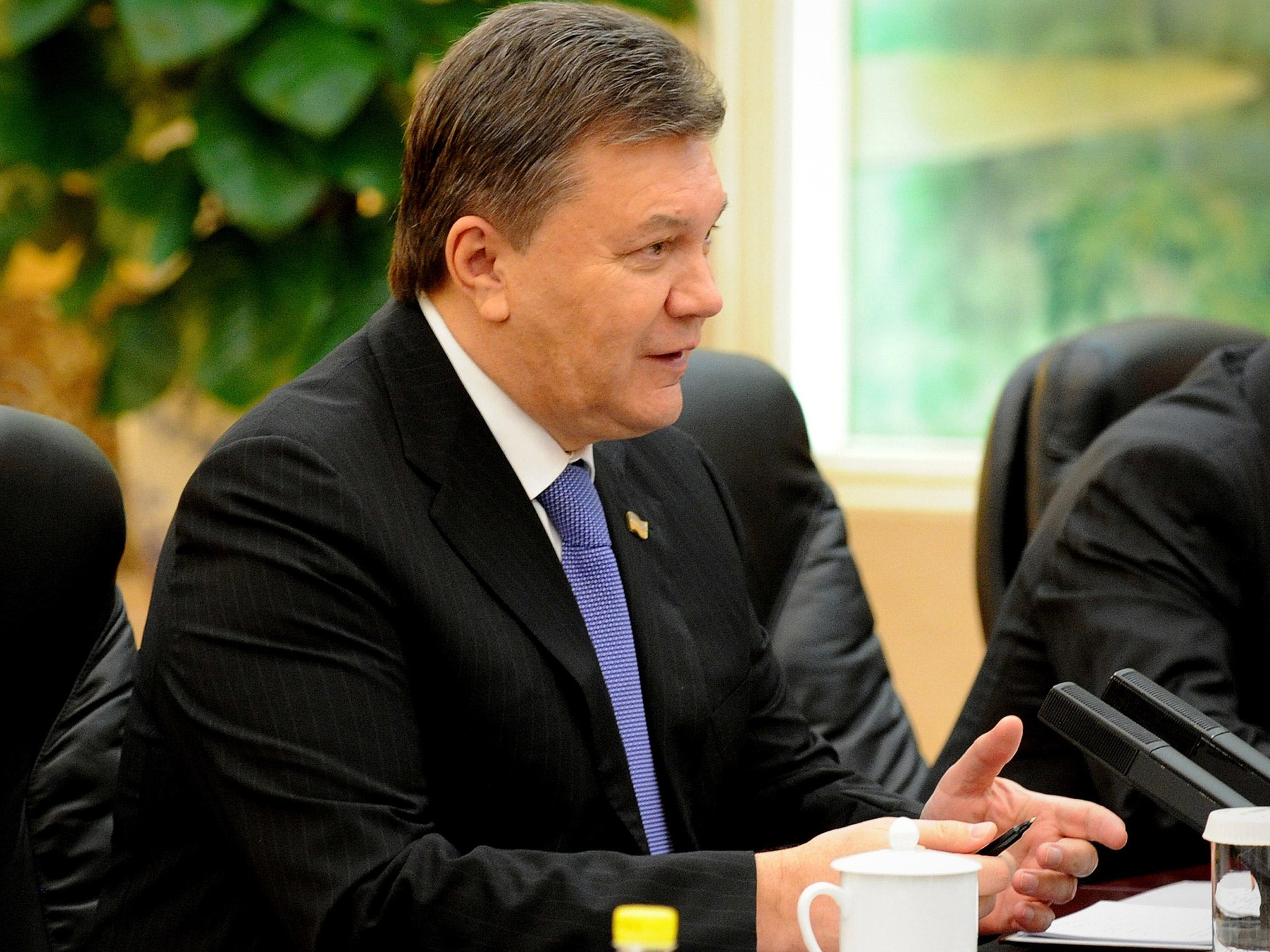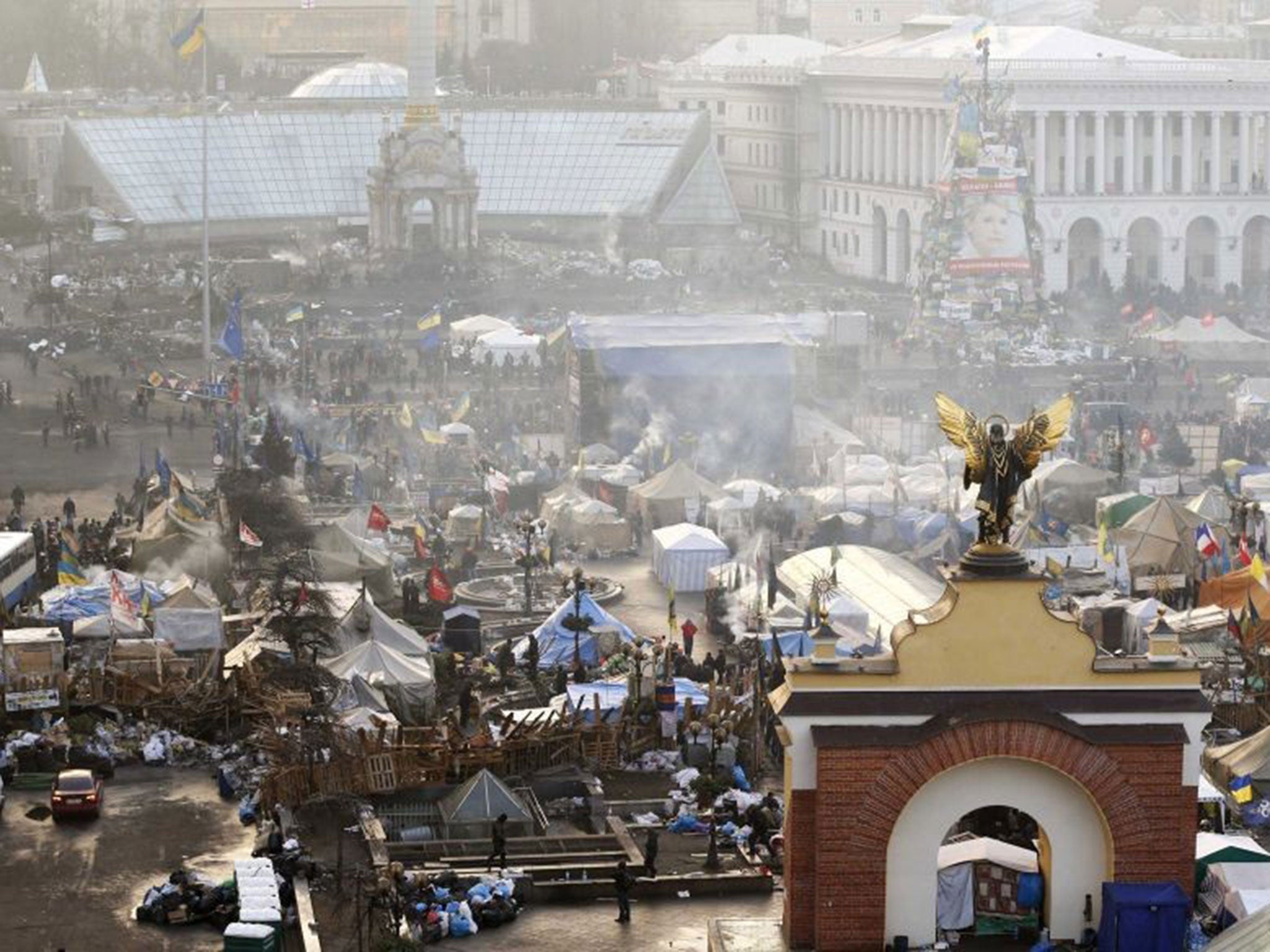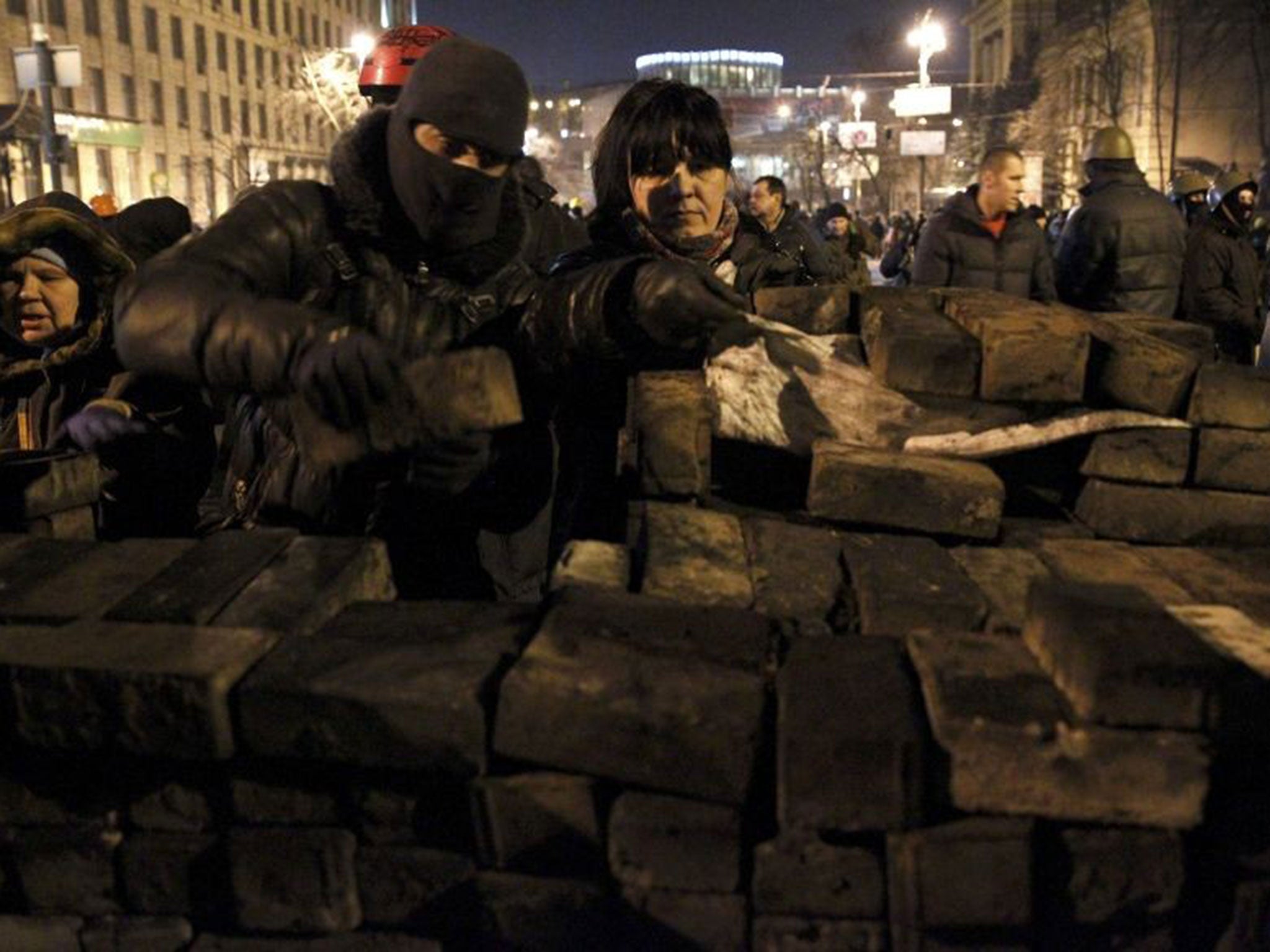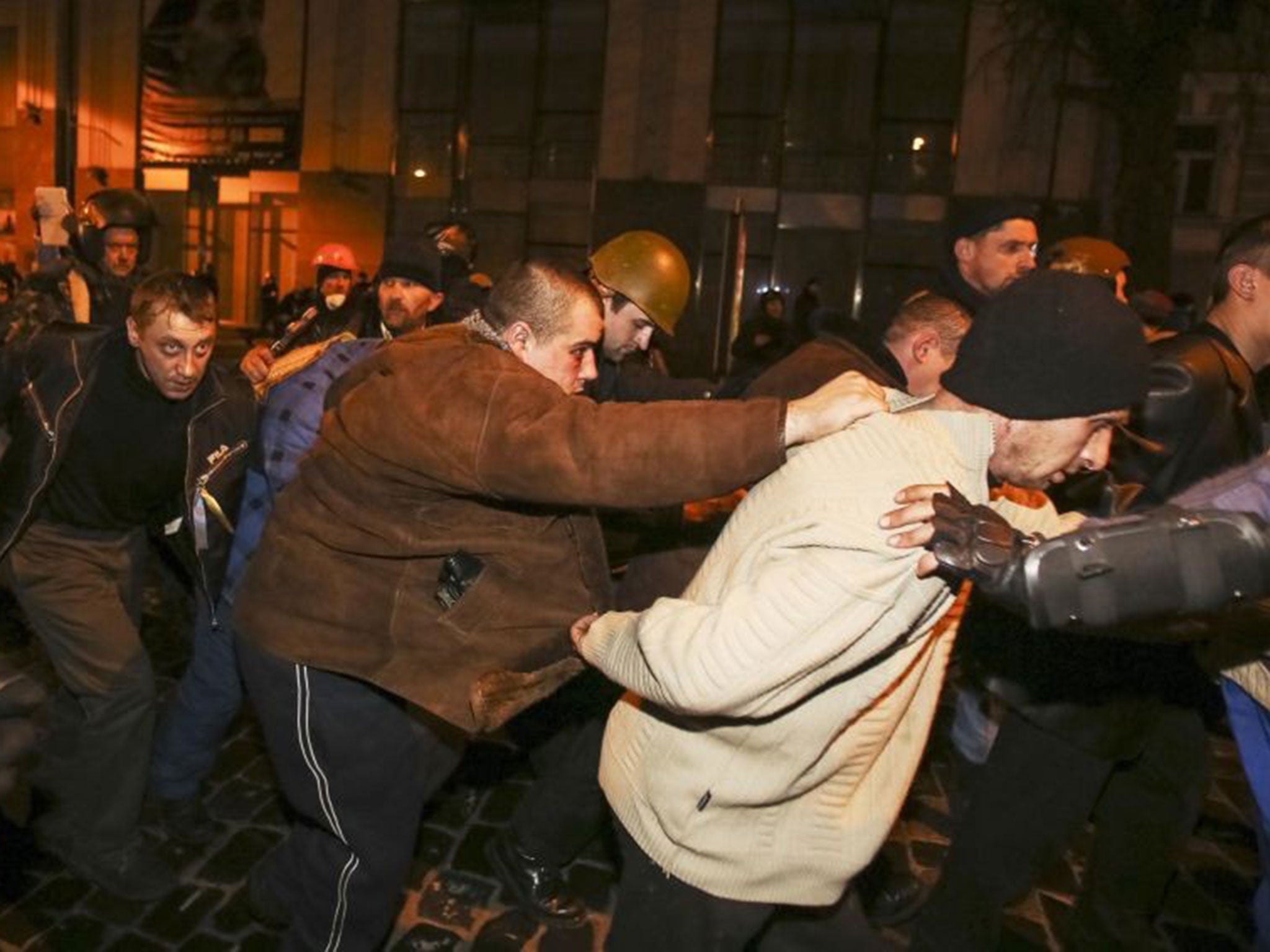Ukraine crisis: President Yanukovych and opposition sign deal to hold early elections
Presidential press agency says deal will be signed later today as death toll from violence reaches at least 77

Your support helps us to tell the story
From reproductive rights to climate change to Big Tech, The Independent is on the ground when the story is developing. Whether it's investigating the financials of Elon Musk's pro-Trump PAC or producing our latest documentary, 'The A Word', which shines a light on the American women fighting for reproductive rights, we know how important it is to parse out the facts from the messaging.
At such a critical moment in US history, we need reporters on the ground. Your donation allows us to keep sending journalists to speak to both sides of the story.
The Independent is trusted by Americans across the entire political spectrum. And unlike many other quality news outlets, we choose not to lock Americans out of our reporting and analysis with paywalls. We believe quality journalism should be available to everyone, paid for by those who can afford it.
Your support makes all the difference.The Ukraine president has signed a deal with opposition leaders, agreeing to hold early presidential elections after all-night crisis talks.
President Viktor Yanukovych also agreed to a national unity government and to make constitutional changes that would reduce the powers of the president.
The President and three opposition leaders Vitali Klitschko, Arseniy Yatsenyuk and Oleh Tyahnibok signed the deal in the Ukrainian president's office Friday.
The deal was also signed by two European Union foreign ministers who helped broker it in tortuous negotiations that lasted more than 30 hours.
"This agreement is not the end of the process. It's the beginning of the process," German Foreign Minister Frank-Walter Steinmeier said after the signing.
Ukraine's newly empowered parliament has since voted to allow the release of former Prime Minister Yulia Tymoshenko after she spent more than two years in prison.
Legislators voted 310-54 to decriminalize the count under which she was imprisoned, meaning that she is no longer guilty of a criminal offense.
"Free Yulia! Free Yulia!" legislators chanted after the vote.
It's not immediately clear when she might be released from the eastern city of Kharkiv where she is serving her sentence
Her release came after shots rang out in Kiev's Independence Square and fights broke out among deputies in Ukraine's parliament this morning, despite the president's assurance that a peace deal had been reached with opposition leaders in overnight crisis talks.
The agreement was reached following hours of talks mediated by three EU foreign ministers. It says a new presidential election will be held no later than December 2014. It also says that Ukrainian authorities will restore within 48 hours a previous constitution that limits presidential powers, then name a coalition government within 10 days.
The agreement adds that the government will not impose a state of emergency and both sides will refrain from violence.
The signing came hours after Mr Yanukovych made concessions under pressure from European mediators.
Fighting had broken out earlier between deputies in Ukraine's parliament earlier when the speaker declared a pause during a debate on a possible resolution calling for Mr Yanukovych's powers to be reduced.
More violence on the streets of Kiev was reported today. Ukraine police allegedly shot back when protesters opened fire opened fire on officers between the main protest square in Kiev and the parliament building.
It was not immediately clear who was firing the shots in the square, also known as the Maidan, but the country's interior ministry accused the opposition of breaking the shaky truce by shooting at police.
The deal came as the Ukrainian health ministry put the number of people killed in this week's violence at 77, though opposition activists say the figure is over 100.
Read more:
Bloodshed on Europe's doorstep as EU tries to stop killing
This morning, several thousand protesters milled around Independence Square, known as the Maidan, which earlier this week was rocked by street battles between protesters and police.

Yanukovych and the opposition protesters have been locked in a battle over the identity of Ukraine, a nation of 46 million that has divided loyalties between Russia and the West. Parts of the country — mostly in its western cities — are in open revolt against Yanukovych's central government, while many in eastern Ukraine back the president and favour strong ties with Russia, their former Soviet ruler.
In Brussels, the 28-nation European Union decided in an emergency meeting yesterday to impose sanctions against those behind the violence in Ukraine, including a travel ban and an asset freeze against some government officials.
Yesterday was the deadliest day yet at the sprawling protest camp in Kiev. Snipers were seen shooting at protesters there, and video footage showed at least one sniper wearing a Ukraine riot police uniform.
One of the wounded, volunteer medic Olesya Zhukovskaya, sent out a brief Twitter message — "I'm dying" — after she was shot in the neck. Dr Oleh Musiy, the medical coordinator for the protesters, said she was in serious condition after undergoing surgery.

Video footage on Ukrainian television showed shocking scenes yesterday of protesters being cut down by gunfire, lying on the pavement as comrades rushed to their aid.
Protesters were also seen leading policemen, their hands held high, around the sprawling protest camp in central Kiev. The Interior Ministry said 67 police were captured in all. An opposition politician said they were being held in Kiev's occupied city hall.

The US State Department on Thursday issued a statement warning citizens "to defer all non-essential travel to Ukraine due to the ongoing political unrest."
The Kremlin issued a statement with Putin blaming radical protesters and voicing "extreme concern about the escalation of armed confrontation in Ukraine."
The Russian leader called for an immediate end to bloodshed and for steps "to stabilize the situation and stop extremist and terrorist actions." He also sent former Russian ombudsman Vladimir Lukin to Ukraine to act as a mediator.
Additional reporting by the Associated Press
Join our commenting forum
Join thought-provoking conversations, follow other Independent readers and see their replies
Comments